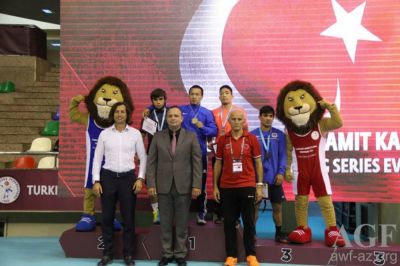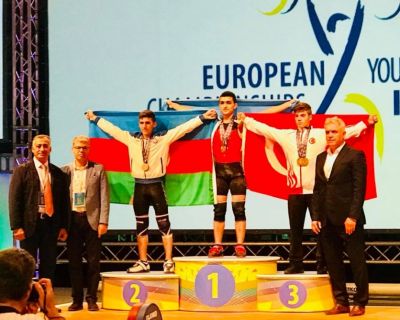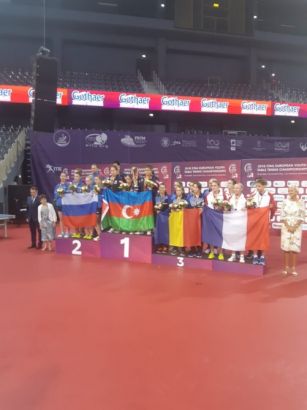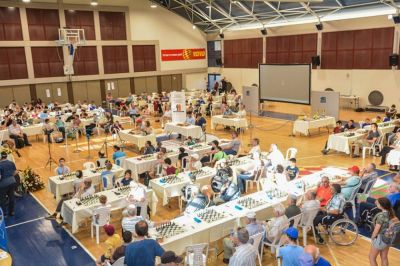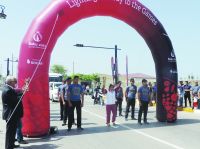The Azeri Tribune has published an article by Berlin correspondent of Azerbaijan State Telegraph Agency (AzerTAc) Vugar Seidov.
The following is the full text of the article:
“In his interview for Azerbaijani information portal News.Az, Dennis Sammut, executive director of LINKS, while admitting the imperfectness of the Minsk Process, puts the blame for the failure of the negotiation process on both sides of the conflict. However, if asked to justify his position, he would certainly find it difficult to explain what exactly the fault of the Azerbaijani side is.
Particularly so, since it was Baku that has for the last 20 years waited for Armenia to honor the numerous resolutions of the United Nations, the Parliamentary Assembly of the Council of Europe, the European Parliament, NATO, the OSCE, the OIC, and the Non-Aligned Movement, as well as numerous appeals by national parliaments and world leaders. It was also Baku that accepted the modified Madrid Principles and even agreed to the legally binding voting of the entire population of the Nagorno-Karabakh region at one point in future. Armenia, in turn, has rejected the Madrid Principles and, instead, responded by launching its program of settling non-Karabakhis in that region and establishing Armenian settlements in seven regions where there had never been any Armenians before.
Moreover, Baku has never raised – and perhaps, it should have – the issue of the repatriation of Azerbaijani refugees to their native places in Armenia and the establishment of a symmetrical autonomy for them akin to the one Armenians enjoyed and will enjoy in Azerbaijan`s Nagorno-Karabakh region following the end of the latter`s occupation by Yerevan. A good question would therefore be why Armenians should continue to live in Azerbaijan and still upgrade their autonomy further, indeed to the highest possible, while the expulsion of Azerbaijanis from Armenia is viewed as irreversible and a parallel autonomy for the former following their repatriation in Armenia is not even considered. Perhaps, Mr. Sammut could clarify his equalization of faults of the two sides.
Further, rejecting isolationism in the context of opening the airport, Mr. Sammut is fair to suggest that, "Armenians in Nagorno-Karabakh feel like a community under siege and this does not help create an atmosphere of peace." However, speaking about the feelings of the Armenian Karabakhis and not saying a word about what it feels like living for twenty years in exile and being denied the right to return home – the plight of the Azerbaijani Karabakhis – does not help foreign observers, especially those with limited knowledge of the conflict, to better understand the complexity of the 20-year-long stand-off. After all, what is worse: to live quite comfortably at home, yet far from the nearest airport – a situation of Armenians in Nagorno-Karabakh today – or to live in temporary refugee shelters in inhumane conditions far from one`s ancestral home, yet close to a functioning international airport – a situation in which Azerbaijani IDPs from Shusha and Khankendi have found themselves for the last two decades? That is, unless the plight of Azerbaijani refugees and IDPs is understood and attended to by the international community, it will be difficult to understand and, consequently, end the conflict.
Finally, Mr. Sammut argues in favor of "the opening of the airport from a humanitarian perspective... under some kind of international supervision" and "purely for civilian traffic." If we are to speak about the humanitarian content, it is certainly hard to disagree that in the Nagorno-Karabakh context there is no greater humanitarian concern than refugees and IDPs. It is entirely wrong to think, however, that the problem can be solved by addressing the feelings and concerns of one side only. Rather than limiting the scope of humanitarian attention to the airport – particularly doing so prior to the return of the Azerbaijani community to the region and thus making the Armenian Karabakhis the sole beneficiaries of the airport`s operation, something that would divide the two communities still more deeply – it would be more effective, in terms of confidence-building, to designate the entire region of Nagorno-Karabakh a zone of international humanitarian concern and help the Azerbaijanis who used to live there return to their homes under the very same kind of international supervision. Following the latter measures, all communications, including the airport, could be re-opened and used purely for civilian traffic, something that would have both communities benefit from the measure. The opening of the airport before and/or without the prior move to restore the bi-communal structure of the population of Nagorno-Karabakh will only invite the Armenian side to rejoice in their interpretation of the developments as a political victory of sorts that adds credence to their position regarding the status of Nagorno-Karabakh.
Indeed, one finds it hard to understand – still harder to accept – a humanitarianism whereby an airport is more important than a human and the right to fly is more important than the right to live at home.
Vugar Seidov
AzerTAg Special Correspondent
Berlin”
© İstifadə edilərkən "Xalq qəzeti"nə istinad olunmalıdır.





